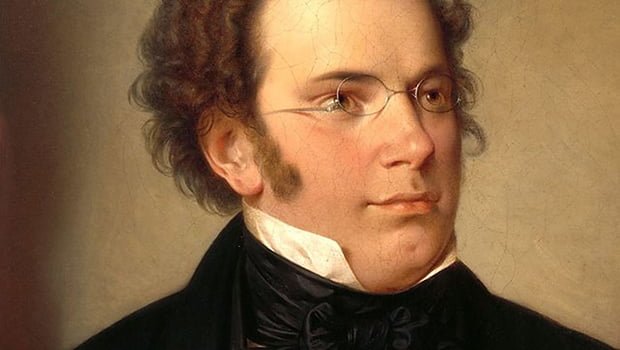Franz Schubert, a pivotal figure in the transition from the Classical to the Romantic era, left behind a rich legacy of compositions that continue to captivate audiences. Known for his remarkable ability to blend lyrical beauty with profound emotional depth, Schubert’s works span various genres, from symphonies and chamber music to songs and piano pieces. Here’s a closer look at ten of his most celebrated compositions:
1. Symphony No. 8 in B Minor, “Unfinished” (D. 759)
Often hailed as one of Schubert’s masterpieces, the “Unfinished” Symphony is notable for its emotional intensity and innovative orchestration. Comprising only two movements, it leaves listeners yearning for a conclusion that never comes, adding to its mystique and allure.
2. Symphony No. 9 in C Major, “Great” (D. 944)
The “Great” Symphony is a monumental work known for its grandeur and expansive structure. With its vigorous themes and intricate development, it represents Schubert’s symphonic ambitions and stands as a cornerstone of the Romantic symphonic repertoire.
3. String Quintet in C Major (D. 956)
Regarded as one of the pinnacles of chamber music, Schubert’s String Quintet features an additional cello, which enriches its texture and depth. The slow movement, in particular, is celebrated for its serene beauty and profound emotional resonance.
4. Piano Quintet in A Major, “Trout” (D. 667)
The “Trout” Quintet is cherished for its joyous and lyrical character. Its unique instrumentation, including the piano and double bass, contributes to its sparkling sound. The fourth movement, a set of variations on Schubert’s song “Die Forelle,” is especially popular.
5. Die schöne Müllerin (D. 795)
This song cycle, based on poems by Wilhelm Müller, tells the poignant story of a young miller’s unrequited love and ultimate despair. Schubert’s music vividly captures the protagonist’s emotional journey, making it a seminal work in the art song genre.
6. Winterreise (D. 911)
“Winterreise,” another song cycle set to poems by Müller, is one of Schubert’s darkest and most introspective works. It explores themes of loss, alienation, and existential despair, with each song contributing to the overarching narrative of the wanderer’s desolate journey.
7. Impromptus (D. 899 & D. 935)
Schubert’s Impromptus are among his most beloved piano works, blending lyrical melodies with technical brilliance. These pieces, divided into two sets, showcase his ability to craft miniature masterpieces that are both intimate and expressive.
8. Moments Musicaux (D. 780)
The “Moments Musicaux” are a collection of six short piano pieces that highlight Schubert’s gift for creating vivid moods and character pieces. Each piece, with its distinct style and charm, remains a staple of the piano repertoire.
9. Ave Maria (D. 839)
Originally titled “Ellens Gesang III,” Schubert’s “Ave Maria” is one of the most recognized and performed settings of the Latin prayer. Its serene melody and heartfelt expression have made it a favorite in both sacred and secular contexts.
10. “Death and the Maiden” Quartet (D. 810)
The String Quartet No. 14, “Death and the Maiden,” is one of Schubert’s most dramatic and powerful chamber works. The second movement is a set of variations on his earlier song “Der Tod und das Mädchen,” and the quartet as a whole is marked by its intense emotional contrast and depth.
Schubert’s Legacy
Franz Schubert’s music continues to resonate due to its profound emotional depth, lyrical beauty, and innovative harmony. His ability to infuse classical forms with Romantic expressiveness has secured his place as one of the greatest composers in Western music history. Whether through the intimacy of his lieder or the grandeur of his symphonies, Schubert’s compositions remain a testament to his unparalleled genius and his enduring impact on the world of music.


Comments are closed